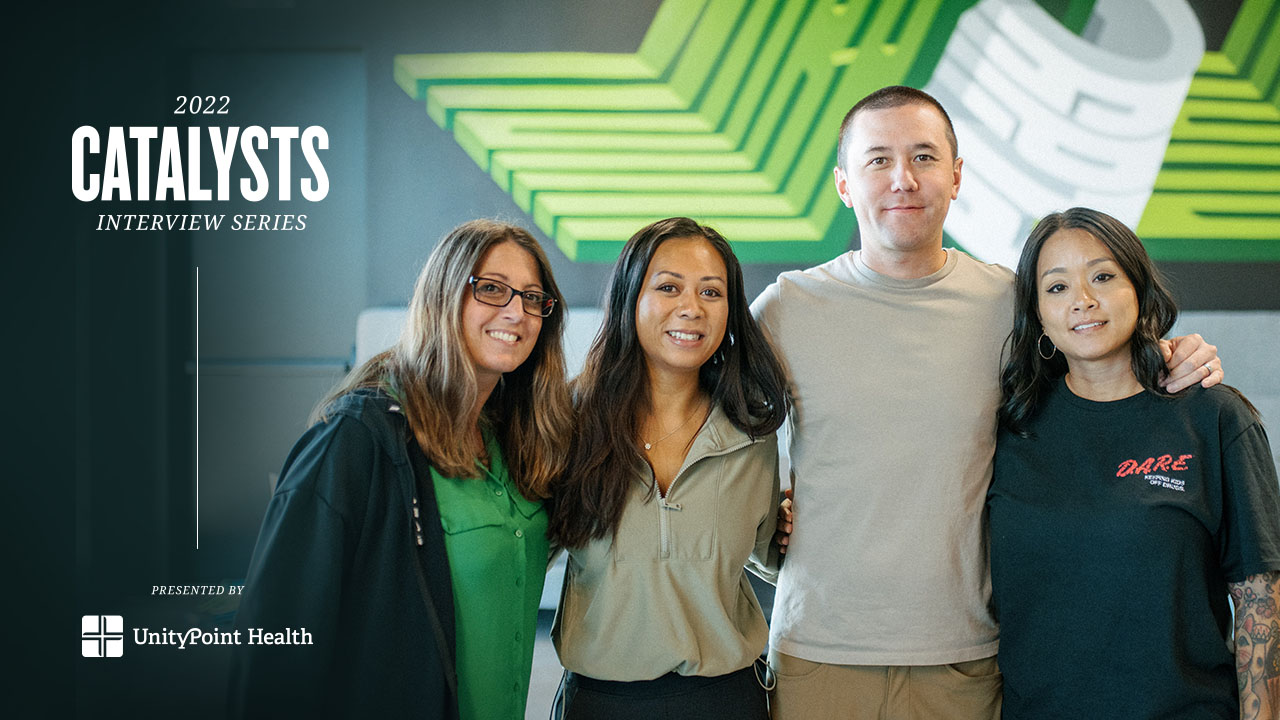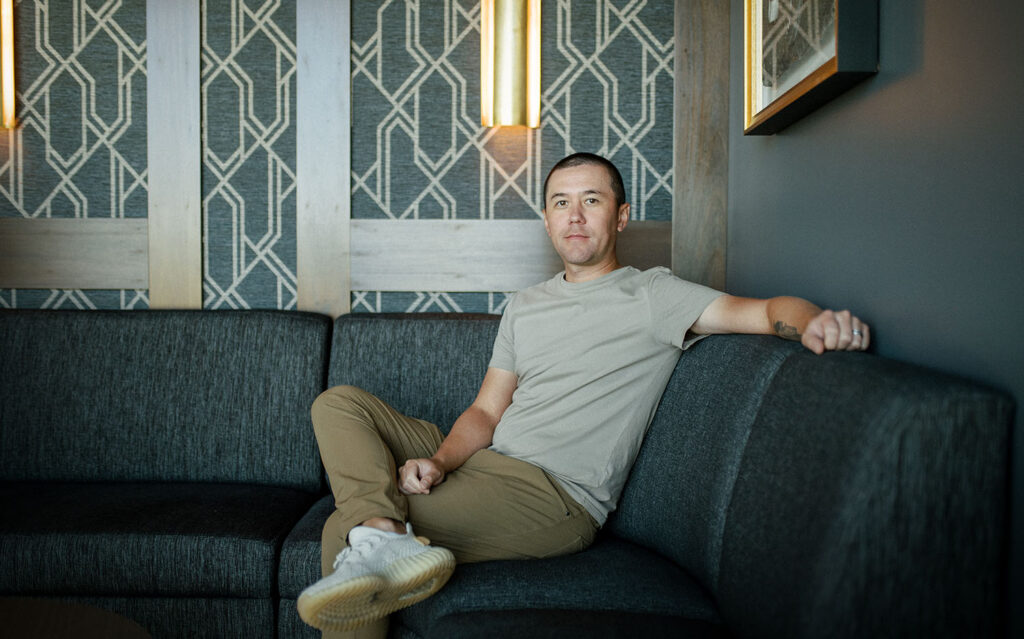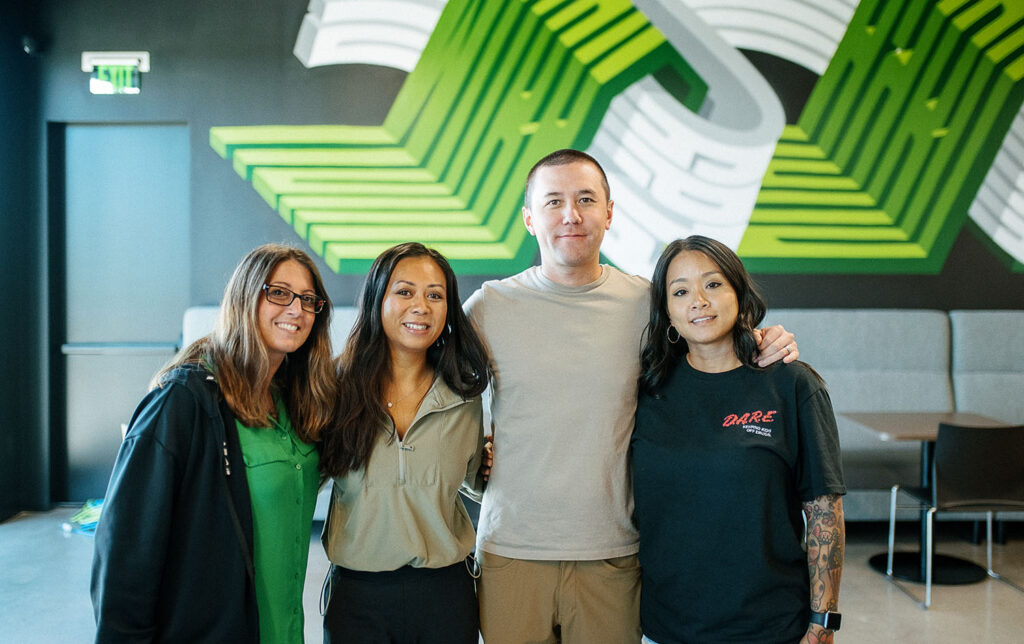
2022 Catalysts Interview – VizyPay
VizyPay – a Waukee-based fintech company that’s disrupting credit card processing by eliminating or greatly reducing processing fees for small businesses – not only takes innovative approaches to its work, but also to its hiring practices, which has led to a diverse employee base.
Founded by Austin MacNab, VizyPay is making some serious waves in the payment fintech space while also helping small business owners thrive. The Technology Association of Iowa connected with Austin to learn more.
What is your background? How did you get started in FinTech?
I’ve been in the payment fintech space my whole adult life. I got into it at 18, 19 years old. At first, I was an independent contractor for a company out of Santa Barbara, and I was going door to door selling credit card processing machines and allowing business owners to accept credit cards, et cetera. And then I ended up working for a bigger organization for 11 years called Central Payment out of San Rafael, California. I spent those years on the back end as an executive sales director, managing independent contractors and sales reps across the country until I left in 2017 to start VizyPay.
Where does your passion for DEI come from?
I’m half Vietnamese and half white. My mom’s Vietnamese and immigrated from Vietnam. And then my dad, he was a Marine, and they met when she came over to America. Then they divorced when I was like 4 or 5.
Being in the industry as long as I have, I get to notice all the great things it does – and all the bad. One thing I noticed over my career is that we face a lot of what we call dinosaurs in our business; companies that have been around for a couple decades that are not willing to change processes or how they think and move. So, bottom line is we deal with a lot of dinosaurs that are usually ran by white males across the United States.
As I progressed in my industry experience, I noticed several other things. I felt that customers could be better taken care of in rural America. I believe that those individuals are taken advantage of the most. And I believed that we could start a company that is much more diverse than what other companies are within our space. Now over 50% of our company employees are minorities, and 25% plus are women.

I believed that we could start a company that is much more diverse than what other companies are within our space. Now over 50% of our company employees are minorities, and 25% plus are women.
- Austin Mac Nab
How has VizyPay been very successful in attracting and retaining diverse talent?
We did one unique thing, which I think has helped us really accel. 95% of our staff or more does not come from the payment fintech space. We taught them from scratch.
We started with literally just me five years ago, and now we’re at about 105 employees. We just made necessary efforts to make change within the payment space. It can be disrupted without just technology. It could be disrupted by how you run a company, too, and how people look at that.
You have a unique interview process, which must lend to your diverse talent base as well. Tell us more about that.
Company culture is the first thing we focus on at VizyPay. No ifs, ands or buts about it. That falls into the theme of 50% minorities, 25% women and 95% from outside the payment fintech space. That also comes through interview processes.
No one ever gets hired at this company unless I’ve interviewed them personally. I’ve interviewed probably 104 out of the 105 that are here today. I’m the last interviewer. We don’t go over college degrees or resumes. We have people who used to be forklift drivers all the way to just getting out of college to even running businesses before us.
When we have these interviews and have discussions with these individuals, I don’t let them talk to me about anything above the age of 18. I don’t ask about their adulthood. I don’t ask about their experience. I specifically want them to tell me their story of growing up and their relationship with family and friends, the area they grew up in, the goods, bad and ugly of growing up, were they bullied, were they not bullied.
I want to get to know them on a personal level and kind of build an idea of who their character is. Because I don’t even look at their resume before I talk to them. I don’t want to prejudge or judge a book by its cover.
That’s allowed us to bring a lot of diverse background into our organization and really get different experiences without forcing them to have a cookie cutter way of being brought in.
With a resume, a simple question is always what are your strengths, and what are your weaknesses. That’s not how we do things when we hire people. I think you’re taught in college and maybe even in high school how to interview. I actually tell them to leave that at the door. I don’t want that person. We truly allow them to come to our organization and be who they are. That’s allowed us to have a lot more creativity and innovation. And I think awareness is key to make sure that you build a diverse company along with how you actually bring them in the door as well.
It sounds like that unique method of interviewing has served you well.
That’s probably been our biggest home run. I literally throw the resume away. I just don’t care.
We’re not hiring people for heart surgery. We’re hiring people to come into our organization and buy into our three whys, which are culture, transparency and being the voice of small business owners. And we want them to buy into our work hard, play hard mentality. We want them to buy into being your own genuine, authentic self.
I can teach them fintech and payments. Now, has that slowed our trajectory of growth? Of course, because it takes a lot more months to teach someone from scratch than if they came in with all that experience. But we are willing to take that extra work and extra steps to get the right people in.

You must get to hear some really interesting and inspiring stories through your interview process.
Yeah, for sure. They tell you a lot about that person – what they witness and what they experienced and believe. That flows into adulthood and work. That flows into the attitude that they might have. You know, why is that person sometimes on edge? Well, I kind of know why, because all growing up, they were on edge. That’s all they dealt with. You know what I mean? So how do we help them level up and be better? We’re able to gauge more of their strengths and weaknesses and help them do better because at the end of the day, look, they’re not on our journey. We’re on theirs.
We’re able to gauge more of their strengths and weaknesses and help them do better because at the end of the day, look, they’re not on our journey. We’re on theirs
- Austin Mac Nab

